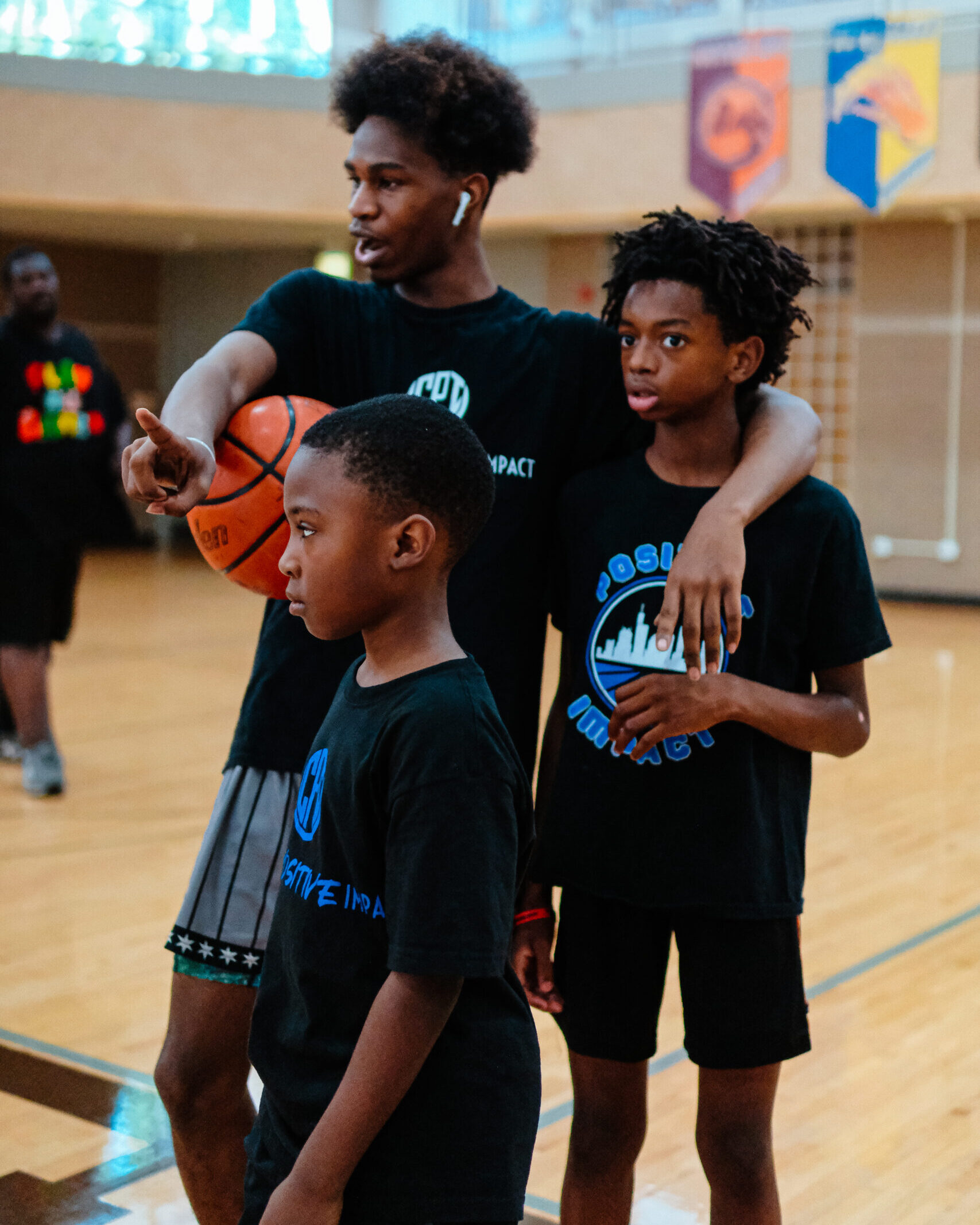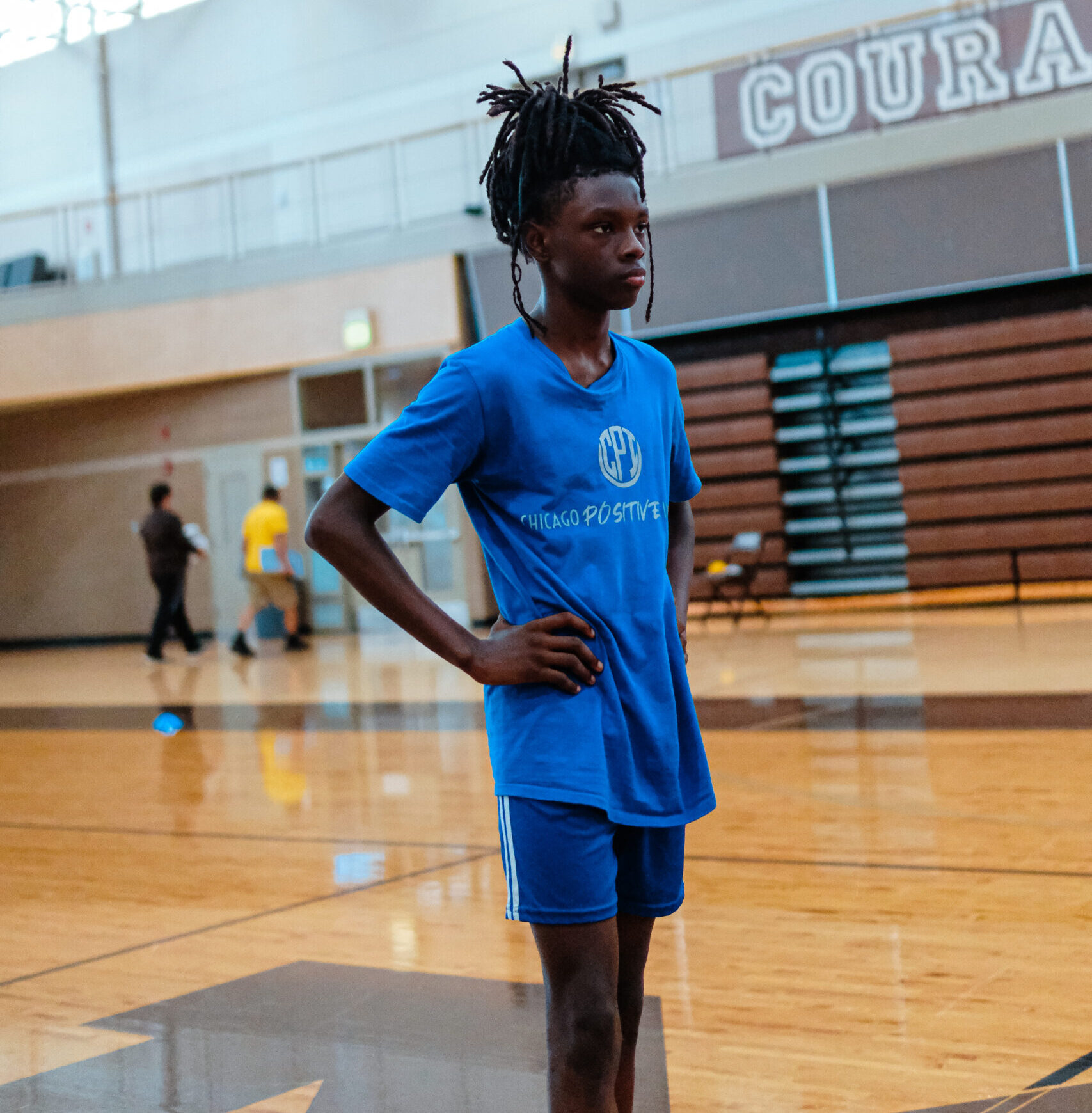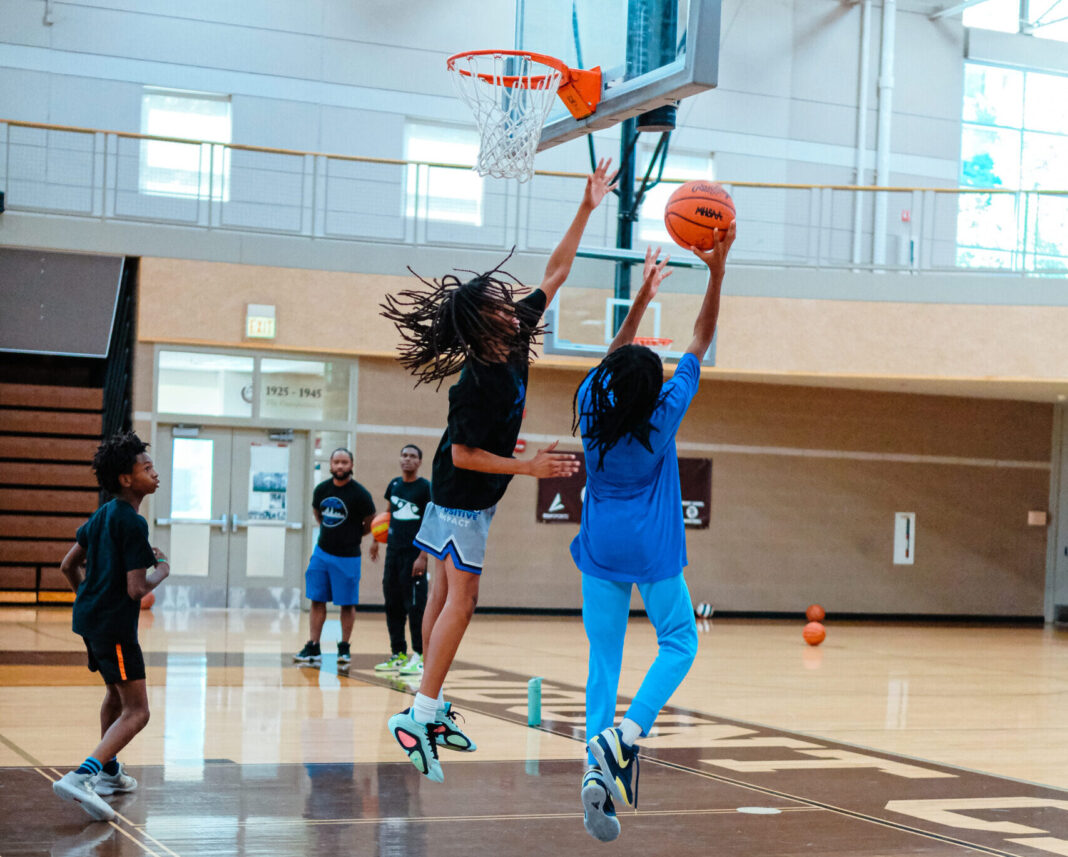A few years ago, a young man walked into the Chicago Positive Impact gym with a short temper, low grades, and no real sense of direction. Life threw everything at him, and he could’ve easily continued roaming lost down this path. However, six months in the program changed his life. With the help of his black male mentors and coaches who listened to him, held him accountable for his actions, and pushed him to become a better person, he learned how to control his emotions, work with his peers, and think beyond just staying out of trouble or surviving the night. His grades went up. The fights stopped. And he came back later to mentor the next group of kids. And this fall he will start college at Morehouse on a full scholarship.
“At Chicago Positive Impact, I learned that being a leader isn’t about being the best on the court — it’s about having the courage to use your voice and lift others up, no matter your skill level… Those lessons continue to shape me today — from earning my spot at Morehouse College to stepping into a professional role during my internship at Northern Trust.”
Sure, his handles got tighter and he perfected his bank shot, but it was much deeper than that. It wasn’t just a win on the court. His time as a part of the Chicago Positive Impact program led to a win for his future.
As someone who has spent a lot of time working with programs like Chicago Positive Impact, I’ve seen first hand how programs like these give our youth more than just athletic ability. They offer safety. They offer structure. They offer someone to say, “I’ve been where you are, how can we make sure you don’t stay there?”
When I spoke with Tracy Abrams, founder of Chicago Positive Impact and former pro basketball player from the south side of Chicago, he told me what made him start the program:
“One thing that inspired me to start Chicago Positive Impact was the lack of resources and outlets available to Chicago youth… Growing up in Chicago dealing with poverty and gang violence… Having a mentor really helped me navigate and accomplish things I don’t think I would have been able to… I wanted to be sure that I can provide kids with the same opportunities that I had to grow.”
Tracy is doing just that! I’ve seen with my own eyes. The kids who used to be closed off now walk and play with more confidence. They look up to Black men who show up for them, day in and day out. They learn how to set goals, deal with their emotions, and build meaningful bonds that feel like family. One afternoon, a young man in the program was having a rough day. His body language was bad and he was dragging his feet on the court. He missed a few shots and let his frustration get the best of him. And he started to become enraged because his teammates wouldn’t swing him the rock. But Tracy quickly noticed. He called the kid over, and brought him into a huddle. There was no yelling, just positive energy and encouragement. He reminded the kid that he could impact the game in other ways than just putting the ball in the basket. He gave him a hug, looked him in the eye, and told him to get back out there and play hard. Seconds later, the boy was back on the court playing harder, smiling, and cheering his teammates on.
That beautiful moment between Tracy and the kid brought change, not just in his game, but in his spirit. These moments aren’t measured on stat sheets, but they matter the most. These are life lessons that our youth need because too many of them believe that if they’re struggling in one aspect of their lives then they’re destined for failure. But just like in basketball, if your shots aren’t falling then you can help your team defensively. And in real life, if you’re not in the position to provide financially, you can still show up with love and support. Success on and off the court is about being resilient and being able to play your role and be an asset to those around you.
 It’s easy to dismiss programs like this. Many people can argue, “Violence is going to happen regardless. What’s a basketball program going to do?” While I do concede that violence is inevitable, It is apparent that these people aren’t in these gyms. They’re not watching a young man get his first real compliment from someone who he views as a father figure. They’re not seeing how accountability, routine, and love can give a kid a reason to think twice about their actions and not go pick up a gun or drop out of school.
It’s easy to dismiss programs like this. Many people can argue, “Violence is going to happen regardless. What’s a basketball program going to do?” While I do concede that violence is inevitable, It is apparent that these people aren’t in these gyms. They’re not watching a young man get his first real compliment from someone who he views as a father figure. They’re not seeing how accountability, routine, and love can give a kid a reason to think twice about their actions and not go pick up a gun or drop out of school.
According to the CDC, Youth Violence is a serious problem that can have a negative impact on our community and when communities invest in the right programs, violence goes down. And you don’t have to go fishing to find proof. The proof is in the pudding. Walk into Mount Carmel High School on a Tuesday afternoon at 4 O’clock and you’ll see it for yourself. A gym full of energy. A gym full of male mentors. And most importantly a gym full of love. It’s very rewarding to see Tracy Abrams speaking life into the youth, all because someone took the time to invest in him when he was younger.
Abram’s put it best:
“In my experience, having a positive male role model… gives students a person to rely on… to guide them to be better decision makers and goal oriented… Holding you accountable on a consistent basis builds major confidence… A role model can help you navigate from violence and negative influences by just being supportive and leading by example.”
These mentors are not just teaching kids how to dribble or shoot a basketball. They’re teaching them how to breathe when they’re angry. How to speak up when they’re hurting. How to not give up when life gets hard. How to deal with adversity.
In Chicago, where the typical new story focuses on who was shot or arrested, we need to start telling the stories of who was saved. And often, those stories start in a gym, with a ball, big dreams, and a male mentor who won’t give up until his kids achieve those dreams.
Sports programs like Chicago Positive Impact deserve our attention. And most importantly they deserve our support because they’re not just developing our youth. They’re saving lives. In Chicago, too many stories in our community end in sirens. But in programs like these, stories begin on the baseline and end with college acceptance letters.




